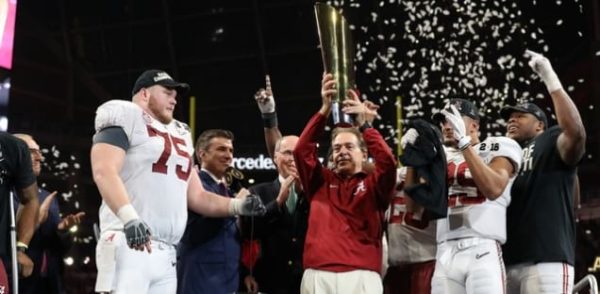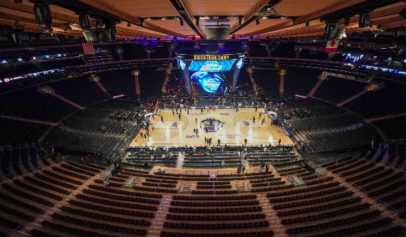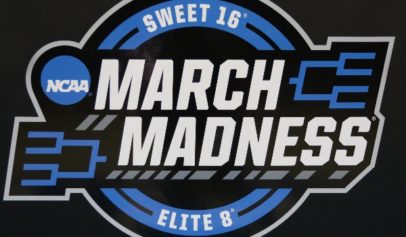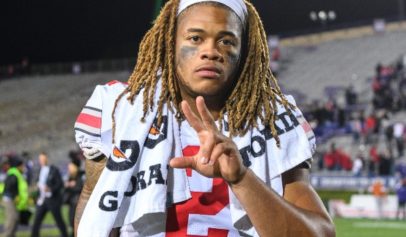
This is Alabama’s sixth CFB title win under head coach Nick Saban. (AP Photo)
Should college athletes get paid to play? That’s the question on everyone’s mind after the Alabama Crimson Tide’s stunning win over the Georgia Bulldogs Monday night at the 2018 College Football Championship in Atlanta, Ga.
The 16-time national title winners not only walked away with a shiny golden trophy and bragging rights for years to come but with their pockets a little fatter. Well, at least the coaches did.
ESPN College Football reported Tuesday, Jan. 9, that Alabama’s coaches earned a whopping $1.27 million in bonuses for snagging the college football playoff title yet again. The team’s top 5 earners included defensive coordinator (DC) Jeremy Pruitt, who raked in an additional $234,000; offensive coordinator (OC) Brian Daboll, who earned an extra $216,000; and of course head coach Nick Saban, pocketing $100,000.
Alabama’s coaches will receive $1.27 million in bonuses for winning title. pic.twitter.com/rN4kNrhCLK
— Darren Rovell (@darrenrovell) January 9, 2018
The lucrative bonuses were well and good, but the university’s ability to dole out millions to football coaches reignited the intense debate over whether collegiate players should be paid for their talents or not. NCAA regulations explicitly prohibit “amateur” athletes from earning any sort of salary for participating in athletics as part of its effort to preserve “an academic environment in which acquiring a quality education is the first priority.”
Still, many critics went to bat for collegiate players, arguing that if schools have enough money to pay coaches an extra $1.27 million for winning a game, they should surely have enough to pay their players too.
$100,000 bonus for Saban if Alabama wins.
$400,000 bonus for Smart if Georgia wins
$1.2 million for a 30 second ad spot during tonight’s game
$7.3 billion is what espn is paying to broadcast game.
$0 For the players playing in the game. #NationalChampionship— Angel (@angelweaverr) January 9, 2018
https://twitter.com/martinrickman/status/950731705844928512
https://twitter.com/Randyljobst/status/950786395718733825
Alabama players: “Aye Coach, can we get some of that bonus money?”
Nick Saban: pic.twitter.com/443geVqtXg
— 🥳 (@yzypreme) January 9, 2018
Ticket prices for the #nationalchampionship game skyrocketed to $3,000 after #Georgia won the Rose Bowl.
But nah. We can't pay the kids.https://t.co/Msk77t5GpA
— Nicole (Fisher) Roberts (@nic_f_roberts) January 8, 2018
I love College Football, but every year it gets harder and harder to justify the current system that is in place. The giant spectacle that is the National Championship just goes to show. Please pay the players and allow them to make money off their likeness.
— Bryant Barnes (@BryantAsIn_Kobe) January 9, 2018
The University of Central Florida announced earlier this month that it’d also pay “national championship bonuses” to its coaching staff, USA TODAY reported, continuing the pattern of college coaches seeing huge payouts after a big win. UCF did not win, let alone make it, to the national championship, however. Still, the school’s coaches and staff will enjoy huge bonuses totaling nearly $235,000, according to the newspaper.
In years past, collegiate coaches have been offered even heftier payouts. Clemson football coach Dabo Swinney stood to earn an extra $400,000 just for playing in the 2016 CFB title game and another $100,000 if he’d actually won it. The Tigers fell to the Crimson Tide in that game, however. Saban pocketed $100,000 on top of his salary for that victory, too, USA TODAY reported.
Retired NFL star Reggie Bush recently weighed in on the issue of compensating college players, saying the athletes should at least get something.
“You know the way I look at, especially [college] football, they’re putting their bodies and livelihoods on the line, just like we are even at the professional level,” Bush told Business Insider. “Just to say that college education is enough when the universities are making so much money off the athletes — they’re selling your likeness.”
“These kids deserve more and they should be given more,” he added. “They should at least be compensated.”


